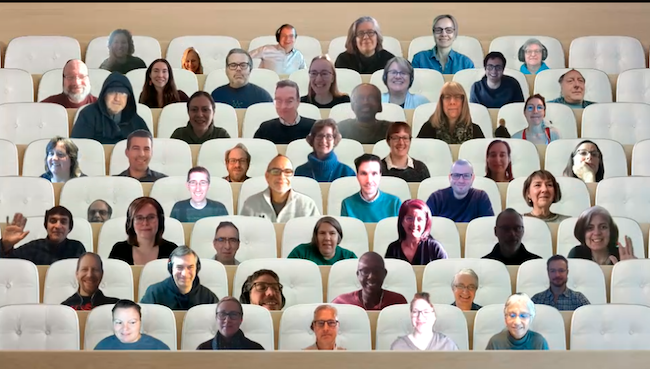Join the FAUW Climate Justice Working Group on the National Day of Action for a Just Transition towards a sustainable future (Huron Natural Area, March 12, 2-4 pm)
— Altay Coskun for the Climate Justice Working Group
More than two years into the pandemic and two weeks into the Russian invasion of Ukraine, it is difficult for climate action to make top headlines. But thanks to the heroism of the Ukrainian botanist Yakiv Didukh, the latest conference of the International Panel of Climate Change (IPCC) aroused unexpected attention. He attended remotely from Kyiv and thus dropped out when required to retreat into the bomb shelters during Russian attacks, but returned to finalize his task on the final report. The Ukrainian delegation is quoted (by Reuters) to have “expressed how upset they are that this will distract from the importance of our report.” But perhaps it is rather the other way round: their courageous action will expose how shallow our own commitment to a swift and just transition has been all along. We can do better; we must do better. In Canada, we are blessed that we can explore adequate climate action and the facets of climate justice in a peaceful environment. This also means we have fewer excuses.
Most of us do not have a deficit of understanding, but one of justice and courage.
On February 28, 2022, the IPCC reported on “Impact, Adaptation and Vulnerability” (Sixth Assessment Cycle Report II) to the Secretary-General of the United Nations António Guterres. The report is available in multiple formats, to allow for differing levels of understanding (I recommend the FAQs version for non-specialists such as myself). The scientific evidence for human-made climate change and the devastating effects on our planet have never been presented with more accuracy or with a higher level of urgency. The current commitments by nearly all states fail to meet the challenge described in previous IPCC reports. Even worse, those earlier reports were built on assumptions about the pace of climate change that, so we are now told, were much too optimistic.
One may doubt, however, that more scientific data will be the game changer. Most of us do not have a deficit of understanding, but one of justice and courage. Indeed, the notion of justice is ever more often evoked in political and scientific declarations relating to climate change. It played a significant role in the 2015 Paris Agreement. In the run-up to the federal elections of 2019, Prime Minister Justin Trudeau promised to pass a Just Transition Act, for which we are still waiting.
Continue reading “Action, justice, and heroism for our climate”
